by Jocelyn Watkin | Mar 30, 2018 | Information |
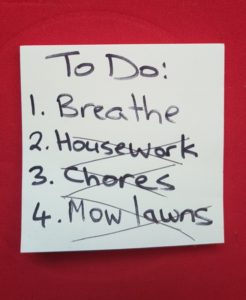 There’s an old tai chi joke and it goes like this: A new student approaches his tai chi teacher to ask, “Master, how do I live as long as possible?” The master, a woman of many decades experience, replies: “Keep breathing as long as you can“.
There’s an old tai chi joke and it goes like this: A new student approaches his tai chi teacher to ask, “Master, how do I live as long as possible?” The master, a woman of many decades experience, replies: “Keep breathing as long as you can“.
Breathing – we all do it automatically: approximately 18 times per minute, 1,080 times per hour and nearly 26,000 times in a 24-hour day. You would have thought we’d got it down to a fine art?
But, what if I told you that most of us could do this breathing thing a lot better? And, by better I mean having more more energy, less anxiety, better sleep, less stress, better posture (with less back ache), and that it was a way you could quickly calm your mind when it is revved up. Of course, you don’t have to do this type of breathing for all of those 26,000 breaths. Instead, you can try it for just for a minute or two and for 2-3 times per day – it could make a huge difference in your life and health.
Tai chi is an ancient, Chinese martial art and exercise that involves a series of movements performed in a mindful, focussed manner and accompanied by deep breathing.
You don’t have to know tai chi to learn tai chi breathing. I can show you how to do this so you can breathe your way to better health. You will be able do this anywhere, anytime, while seated or standing.
Let me show you how in this short, 3-minute video.
Click on this link to find out WHY tai chi breathing is so good for you and why it can help you to bust stress in just a few minutes per day.
Find out more about a winter wellness workshop in June, where you will learn breathing exercises to wallop winter colds and boost your immunity.

Better breathing keeps you warmer in winter and more relaxed. Purr-fect.
by Jocelyn Watkin | Feb 23, 2018 | Information |
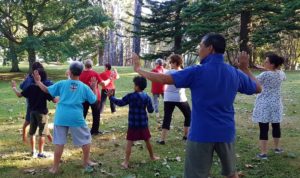
Fun, free and family-friendly
Please note: This event has now passed.
The last two sessions for FREE summer tai chi in 2018 in Cornwall Park were on Sunday 25th, 9-10am and Tuesday 27 February, 6-7pm.
Location: Under the oak trees or on the Rangitoto Steps (stone steps) between the new café and Pohutukawa Drive (look out for the signs).
Described as “moving meditation”, tai chi is an ancient Chinese martial art that combines mental focus and mindfulness with deliberate and relaxed movements that are gentle on the joints.
Summer tai chi in Cornwall Park is fun, free and suitable for all ages. You don’t need special clothes or equipment. Bring comfortable shoes, a sun hat and a water bottle.
Find out more:
by Jocelyn Watkin | Feb 3, 2018 | Information |
 Please note: This is a post from 2018.
Please note: This is a post from 2018.
Kia Ora Tai Chi lessons have now moved to the Manurewa South School hall on Totara Road, Manurewa. Please contact us to ask about current classes and venues.
Do you want to get fitter and healthier? Do you feel stressed or have trouble sleeping? Maybe you’d love to wave goodbye to aches and pains at the gym? If so, then say hello to Kia Ora Tai Chi.
Come along for FREE 45-minute tai chi lessons on Monday 12th and Wednesday 14th February 2018, 6.30 – 7.15pm, with Jocelyn Watkin, a qualified tai chi instructor, who has been practising tai chi for over 15 years. Adults of any age and high school students are all welcome. Scroll down for more information. To RSVP for the free lessons, contact Jocelyn: 027 493 9851 or use the Contact Form to get in touch.
After the free lessons, a beginners’ class will start at the same venue on Monday 19th and Wednesday 21st February, 6.30 – 7.15pm. Prices start from $9.50 per class. If you want to be fitter and healthier or reduce stress then tai chi is for you. It is suitable for adults of any age and fitness levels.
What to wear: Please wear loose comfortable clothing and flat-soled shoes (such as sneakers, trainers or tennis shoes). Please also bring a drinking bottle of water.

Love your heart and health with tai chi
What to expect: The class will begin with a sequence of easy, flowing exercises which are low impact and gentle on your joints. Jocelyn and some of her students will then demonstrate the tai chi form so you can see what it looks like. After that, you can have a go for yourself and learn the first few steps. In just one class, you’ll be doing real tai chi.
Longer term, tai chi can help you to improve your fitness, health and balance, reduce stress and lower blood pressure. Your heart will love you for it. Tai chi is an ancient, Chinese martial art that involves mindful movements performed in a slow, focussed manner and accompanied by deep breathing.
Tai chi is suitable for adults of all ages and fitness levels. If you are unable to stand for very long, Jocelyn is also qualified to teach seated tai chi, which you can do alongside the rest of the class.
Dates/times/pricing: Monday and Wednesday evenings, 6.30 – 7.15pm, from $9.50 per class. Please get in touch with Jocelyn: 027 493 9851 or use the Contact Form to ask about current classes and venues..
For more information:
by Jocelyn Watkin | Dec 29, 2017 | Information |
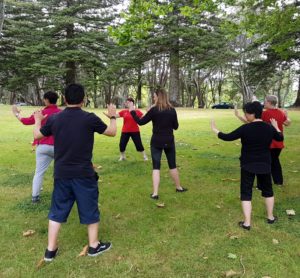 Please note: These sessions finished in February 2018.
Please note: These sessions finished in February 2018.
Contact us to find out about sessions in summer 2022.
Always wanted to give tai chi a go? Come along to Cornwall Park for my FREE tai chi sessions over January and February 2018 and enjoy doing tai chi under the cool of the trees. Or, just sit and watch if you’d prefer.
Starting Sunday 7 January at 9-10am, the sessions will be every Tuesday (6-7pm) and Sunday (9-10am) in January and February (including Auckland Anniversary Weekend, Waitangi Weekend and Waitangi Day). Classes are approximately 45 mins. Fun for all of the family, from children to grandparents.
Location: Under the trees or on the Rangitoto Steps (stone steps) between the new café and Pohutukawa Drive (look out for the signs). If wet, in the big gazebo near to the new café.
Described as “moving meditation”, tai chi is an ancient Chinese martial art that combines mental focus and mindfulness with deliberate and relaxed movements that are gentle on the joints.
Summer tai chi in Cornwall Park is fun, free and suitable for all ages. You don’t need special clothes, shoes or equipment. Bring a water bottle, a sun hat and come as you are.
Find out more:
by Jocelyn Watkin | Oct 26, 2017 | Information |
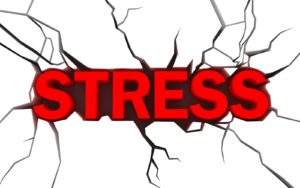 “This tai chi breathing is like a drug”, one of my students said.
“This tai chi breathing is like a drug”, one of my students said.
“In what way?” I asked.
“It is fast acting, enjoyable and like taking both an ‘upper’ and ‘downer’ together.”
I didn’t want to delve into his drug taking history at that point. Instead, I asked him to describe the effect tai chi breathing had on him.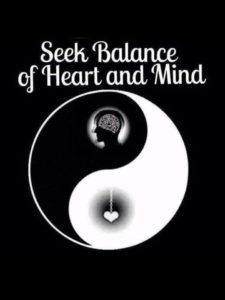
“When I’m tired or down, it lifts me. When I’m over-hyped and stressed, it calms me. When I do it, I feel very satisfied.”
Tai chi and tai chi breathing is satisfying. It’s considered a ‘wonder drug’ to manage stress, as it can give you the gift of balance and harmony.
So, how does it work? Firstly, we need to get our heads around what stress is and what it does to us.
Stress can be a good thing
It is a biological necessity. Back in the ‘dawn of time’ survival stress was our saviour – flooding our bodies with hormones and energy so we could fight or take flight. This was great stuff for a chance encounter with a sabre-tooth tiger or when hunting mammoths.
However, most of us can now get our protein on demand at the supermarket. Our need for survival stress has declined but, unlike the mammoths, it has not become extinct. It’s there whenever we need it, which is a good thing as danger still lurks in the 21st Century. We could still have a chance encounter with a Reliant Sabre or other speeding car as we cross a busy street. If so, our ‘flight’ reactions to leap out of the way will be life saving.
When stress goes bad
‘B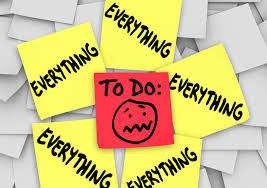 ad stress’ grips you into a strangle hold when you work too hard and for over-extended periods of time – whether at work, home or school. Examples are: constant long hours on the job, noise, crowding, worry, having to rush, meet impossible deadlines and respond to constant demands, all with not enough time for rest, sleep and relaxation.
ad stress’ grips you into a strangle hold when you work too hard and for over-extended periods of time – whether at work, home or school. Examples are: constant long hours on the job, noise, crowding, worry, having to rush, meet impossible deadlines and respond to constant demands, all with not enough time for rest, sleep and relaxation.
This kind of stress fools your body to think it is under attack, so it tries to be helpful by changing to a state of readiness. This is not harmless like switching your mobile phone to ‘flight mode’. Instead, your setting for flight (and fight) causes your body to release a rush of hormones and chemicals, such as adrenaline and cortisol, and divert blood to where it is needed, like your muscles.This is what is called the sympathetic nervous system in action, which makes you breathe faster with a pounding heart. Your body needs this for ‘flight’ or ‘fight’ and a healthy person easily copes with it in occasional bursts.
When stress happens constantly, such as every day and for most of the day, you might not be panting for breath. But, a tsunami of hormones and chemicals are still rampaging through your body, some are raising your sugar and blood pressure levels, so to be ready for flight (or fight). Your other functions, such as digestion and brain activity, suffer as they get less blood to work. If you can’t balance this over-reacting sympathetic nervous system then, even if you have good health, the ‘trolls’ start taking over: indigestion, diabetes, stomach ulcers, high blood pressure, migraine, anxiety, exhaustion …etc
Enter the cavalry, the parasympathetic nervous system and it tries to right the imbalance. This is sometimes called the ‘rest and digest system’ or ‘the relaxation response”. It has a calming effect by slowing the heart rate and the breathing. It also increases digestion and relaxes the internal muscles to help stop those anxious ‘butterflies’ in your stomach and that gut-churning feeling in your abdomen.
But due to the over-stimulated sympathetic nervous system, more help is usually needed.
And the n a hero comes along… no, not Mariah Carey … but tai chi.
n a hero comes along… no, not Mariah Carey … but tai chi.
Tai chi is an ancient, Chinese martial art and exercise that involves a series of movements performed in a mindful, focussed manner and accompanied by deep breathing. Some see it as a meditation, some as a good exercise you do in the park, others as an easy way to relax.
The slow, continuous, gentle movements of tai chi, the deep abdominal breathing and the tranquil mind further activate and support the parasympathetic nervous system. This is why tai chi lifts you up when you’re down or tired and calms you when you’re hyper. It helps your body to return to a balanced state, which is sometimes called the Yin and Yang effect
Tai chi is not an ‘upper’ or a ‘downer’ and nor is it like taking both together, even if some people interpret it as that. It is suitable for all ages and gentle on your joints.
 Dr Paul Lam of the Tai Chi for Health Institute says, “Tai chi is based on nature. Its gentle flowing movements contain an inner power which strengthens the body and mind. Those who practice tai chi become like a tree or river, calm on the outside, but full of internal strength, more capable of withstanding whatever life may throw their way“.
Dr Paul Lam of the Tai Chi for Health Institute says, “Tai chi is based on nature. Its gentle flowing movements contain an inner power which strengthens the body and mind. Those who practice tai chi become like a tree or river, calm on the outside, but full of internal strength, more capable of withstanding whatever life may throw their way“.
Just 4-6 minutes of tai chi or tai chi breathing per day can make a big difference to your health and fitness. You can do this anywhere, anytime. A regular, daily set-time is good to build your strength (both body and mind) and to help quell the ‘trolls’. More is better, of course. Make a start by doing tai chi or tai chi breathing every day, even if you have limited time or ability.
Want to try tai chi breathing right now? Try this short tai chi breathing exercise to reduce stress with Jocelyn Watkin. You can do this while seated or standing at home, in the workplace or elsewhere.
As well as your daily sessions, you can also do extra tai chi or tai chi breathing whenever you need it. You don’t need to rush to the gym or park and nor do you need to find a quiet, dark space. You can do tai chi right where you happen to be. You don’t need special clothes, fancy shoes or expensive equipment and you can do it indoors or outside. It is ‘like a drug’ but there are ‘no nasty chemicals’ or bad side effects.
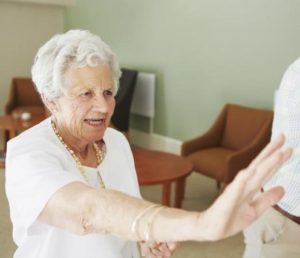
Tai chi makes you feel like a hero lives within you
Dr Lam says, “Hour for hour, practising a Tai Chi for Health programme is probably the most effective exercise to improve health and wellbeing. You can start and continue to progress to higher levels no matter what your age or physical condition”.
Tai chi and tai chi breathing will give you a quiet, inner strength that helps you to take back control of your life. It will make you feel that a hero definitely lives within you.
By Jocelyn Watkin, 2017 ©. Jocelyn has trained in martial arts for over 20 years and has focussed solely on tai chi since 2003. She is a board-certified, premier instructor for the Tai Chi for Health Institute. You can find out more about her here.
————————————————————
Want to know more about how tai chi can help you to bust stress, get fit and feel better about life, the universe and everything? Say kia ora (hello) to my monthly e-newsletter, which has more tai chi well-being and fitness revelations, plus ideas and inspiration to boost that hero within you.
Contact me to request my e-newsletter or scroll up and look to the upper right of this page to directly sign up for it. I promise not to spam you or sell your email address, even if I’m offered $1,000,000.
More information
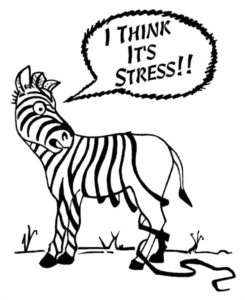
by Jocelyn Watkin | Oct 8, 2017 | Information |
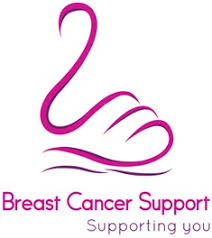 Please note: This event has now passed.
Please note: This event has now passed.
I am delighted and honoured to be working with Breast Cancer Support to teach a very special 3-hour Tai Chi for Rehabilitation workshop.
Whether newly diagnosed, in recovery, or some years down the track, this workshop is for anyone experiencing breast cancer who wants to have a go at tai chi or wonders if this type of exercise will aid with recovery and enhance general well-being? Ideal for tai chi beginners.
The details of the workshop are:
Just two places left. Please book ASAP. (The workshop is limited to ten participants.)
Those who have visited the Mercy Spirituality Centre will know that the surroundings are perfect for a peaceful, calm, and relaxing morning of tai chi.
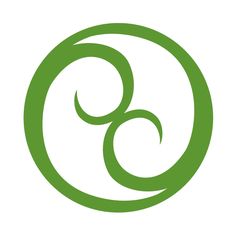
 There’s an old tai chi joke and it goes like this: A new student approaches his tai chi teacher to ask, “Master, how do I live as long as possible?” The master, a woman of many decades experience, replies: “Keep breathing as long as you can“.
There’s an old tai chi joke and it goes like this: A new student approaches his tai chi teacher to ask, “Master, how do I live as long as possible?” The master, a woman of many decades experience, replies: “Keep breathing as long as you can“.
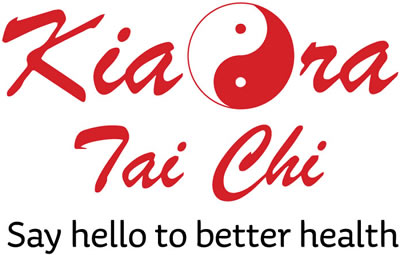

 Please note: This is a post from 2018.
Please note: This is a post from 2018. 
 Please note: These sessions finished in February 2018.
Please note: These sessions finished in February 2018. “This tai chi breathing is like a drug”, one of my students said.
“This tai chi breathing is like a drug”, one of my students said.
 ad stress’ grips you into a strangle hold when you work too hard and for over-extended periods of time – whether at work, home or school. Examples are: constant long hours on the job, noise, crowding, worry, having to rush, meet impossible deadlines and respond to constant demands, all with not enough time for rest, sleep and relaxation.
ad stress’ grips you into a strangle hold when you work too hard and for over-extended periods of time – whether at work, home or school. Examples are: constant long hours on the job, noise, crowding, worry, having to rush, meet impossible deadlines and respond to constant demands, all with not enough time for rest, sleep and relaxation.
 n a hero comes along… no, not Mariah Carey … but tai chi.
n a hero comes along… no, not Mariah Carey … but tai chi.


 Please note: This event has now passed.
Please note: This event has now passed.